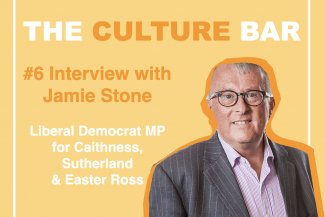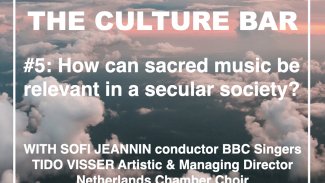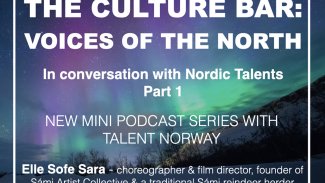THE CULTURE BAR No.6: An Interview with Jamie Stone MP
21/1/2021

In episode #6 of The Culture Bar, we are joined by Jamie Stone Liberal Democrat MP for Caithness, Sutherland and Easter Ross. Jamie is also the spokesperson for Defence and Digital, Culture, Media & Sport.
In this lively and pertinent episode you will hear:
>Jamie talk about the arts and culture sector in the UK
>how UK arts and culture have been impacted by Brexit and the COVID19 pandemic
>technology
>internationalism
>protecting arts and culture livelihoods
>the importance of arts education initiatives
Jamie is interviewed by HP’s Henry Southern.
This interview was recorded on 20 January, the day of Joe Biden’s presidential inauguration in the USA.
We thank Jamie very much for his time and constructive insights on the UK arts and culture sector.
Useful links and resources:
Jamie Stone: www.libdems.org.uk/jamie_stone
The Hidden Life of Trees by Peter Wohlleben: amzn.to/360U6Ym
The Culture Bar is a podcast series created by HarrisonParrott focussing on conversations in culture and the arts.
Find us on Spotify, iTunes, Google Podcasts, YouTube, Podbean, Deezer and all good podcatcher sites.
#theculturebar
A special thank you to Robert Cochrane as the composer of the theme tune music, and Merlyn Thomas our editor.


